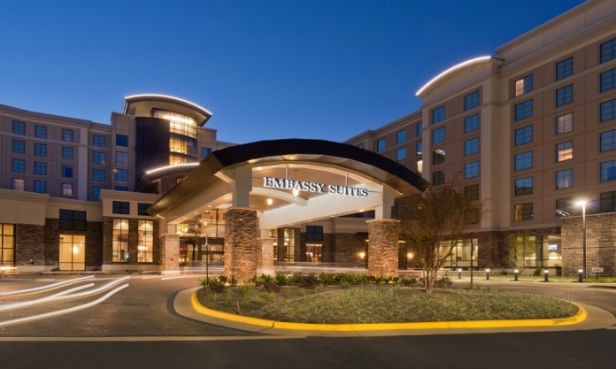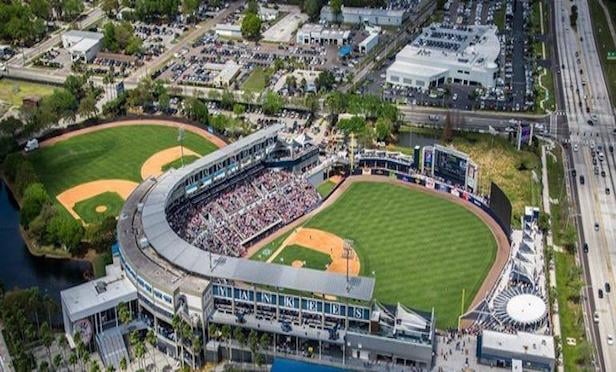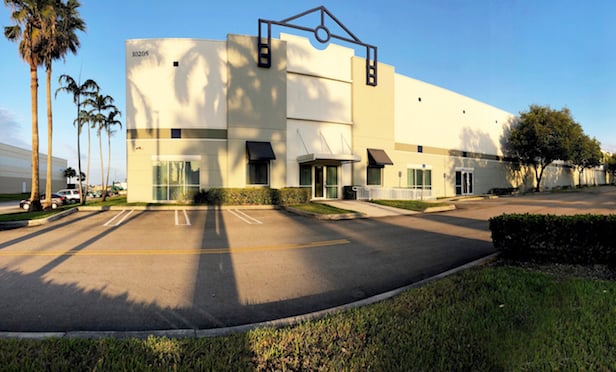FORT LAUDERDALE, FL-Stiles Corp. is celebrating its 60th anniversary this year—and CEO Terry Stiles is sharing his perspective on real estate and development growth as we emerge from the recession.
Stiles Corp. is demonstrating growth. The firm is currently developing stores for both Publix and West Marine with long-term leases for both. The company just completed a 75,000-square-foot development project for Nova Southeastern University, and expects to break ground on a 300-unit apartment project in Plantation by the end of the year.
Stiles Corp., which has architectural, property management, construction and realty divisions, is putting a greater emphasis on Miami-Dade County this year, acquiring more than $120 million in Miami office, retail and mixed-use projects. Stiles Construction has completed more than 30 projects in the region totaling approximately 4.5 million square feet. And the list goes on and on.
GlobeSt.com caught up with Stiles to discuss the changes he sees in the Florida market, the challenges developers are facing right now, where the opportunities are, and more.
LeClaire: How do you see the Florida market changing in the next two years? Do you see signs of an upturn?
Stiles: We are seeing signs. Multifamily is the hot product type today. You’re seeing the architects and land planners becoming busy in that area. We are also starting to see some of the first tier retail people look at projects. Property values are probably as low as they’re going to get. Construction costs are as low as they are going to get.
It’s going to be a long time before you’ll see a new office product. You may see some governmental build-to-suit. But as far as spec office products, it’s going to be a couple of years. Until you see real true job growth I don’t think you’ll see a massive amount of new office products.
LeClaire: What are the greatest challenges real estate developers are facing right now and how is Stiles dealing with those challenges?
Stiles: Our biggest challenge is to find a deal that underwrites to the criteria that the money is interested in. Deals aren’t as easy. The quality deals are not out there. You need a crystal ball. Everything we do is a year and a half out and it’s pretty tricky.
The two product types that we’re focusing on are multi-family and grocery-anchored retail. We would do those all day long if we could find a location or find a specific infill site. With grocery-anchored centers, we were following residential trends. When a subdivision goes in, there is typically a site for a grocery-anchored center.
Now, we are not seeing that residential growth. So we look for infill sites where specific retailers are not present. Once we do find the location, then we determine whether it’s going to be a redevelopment plan. In Florida we’re pretty much out of land. If it’s a redevelopment plan, a lot of times you’re going to do land use changes to modify to the specific use. That takes time. So the deals are harder.
LeClaire: Sixty years is quite a milestone for any company, nonetheless a real estate developer. You have been through at least three market crashes during that time. What has enabled Stiles to remain strong all these years and what strategies have proven effective in getting through the downturns?
Stiles: The fact that we’re a full-service real estate company helps. We’ve been able to fluctuate with market conditions in terms of what product types we go after. During the slow times, our construction group started focusing on public work so we could still generate enough revenue to keep the lights on. We’re very flexible.
Our core business is the development process and what goes along with it. We’ve been able to be flexible with all product types. We’re not just a retail developer. We’re not just an office developer. We’re not just a multifamily developer. We follow the trends of the different market types and adjust our development expertise to that specific product type.
If we don’t believe that we are as expert as we need to be then we will joint venture with experts. That gives us that leg up so we can continue. Our construction company gets to build it and our architectural group gets to design it. Then there’s our third-party work. In this last downturn, we’ve even gone after banks to see if we could use our services to help their REO function. Now, we’re managing and leasing properties for banks as receivers. That has provided us with a new type of business model that we didn’t have five years ago.
LeClaire: We have been hearing that development deals are very hard to come by these days, and financing is difficult to attain. What is Stiles' experience in this area and what kinds of deals are you finding?
Stiles: With grocery-anchored, you’ve got the credit of the grocery store so it’s easily financed. You are seeing equity dollars chasing completed projects. So if you can get them built, you can sell them. With multifamily, everybody is buying into the market. If you look at the rental trends, we are under built in South Florida. It’s going to take some time to catch up. Now, there are a lot of people jumping on multifamily so the caution is not to get into the overbuilt bubble. But I don’t think that’s going to happen for a couple of years.
LeClaire: Sustainability is taking the real estate industry by storm, as more and more projects want to go LEED. Stiles has five LEED certified projects in South Florida. Do you see LEED as a market opportunity for Stiles?
Stiles: We do. As a matter of fact, about three years ago we made a huge effort to get our company as green as we could get it. You’re seeing a lot of the governmental entities saying “if you’re not a green or a LEED building, we will not occupy it.” We have at least 20 LEED-certified people across construction and architecture. As far as the future, I think if you’re not in the green world you’re going to be left in the dust.
LeClaire: So what’s your forecast for the rest of the year?
Stiles: Things are getting better. I don’t think there’s going to be a rapid recovery in our world. The regulations are still tough. Even if you start to see a project take hold, it takes you a while to get it done. The barriers to entry are a little tough. For the last three years it was nothing but negative in the media. Now, you’re starting to hear pretty much all positives. Everybody believes the media. If there’s a positive attitude and people feel better, then they go out and they spend money. And when they spend money, that creates jobs and that’s what’s going to take for us to come out of this.
© Touchpoint Markets, All Rights Reserved. Request academic re-use from www.copyright.com. All other uses, submit a request to [email protected]. For more inforrmation visit Asset & Logo Licensing.






